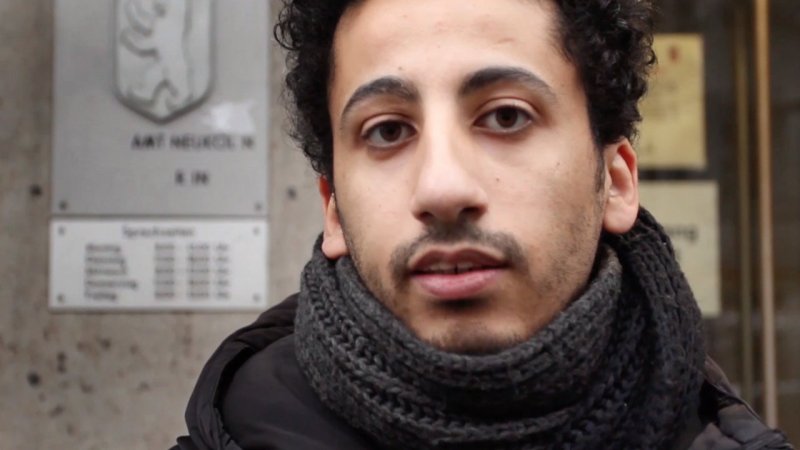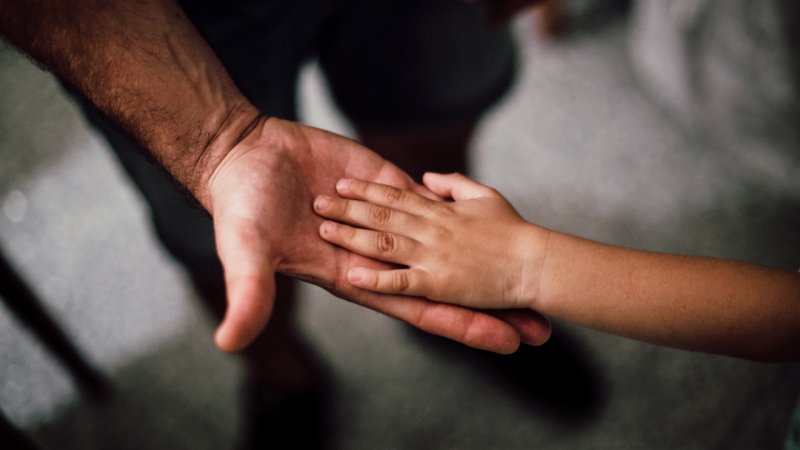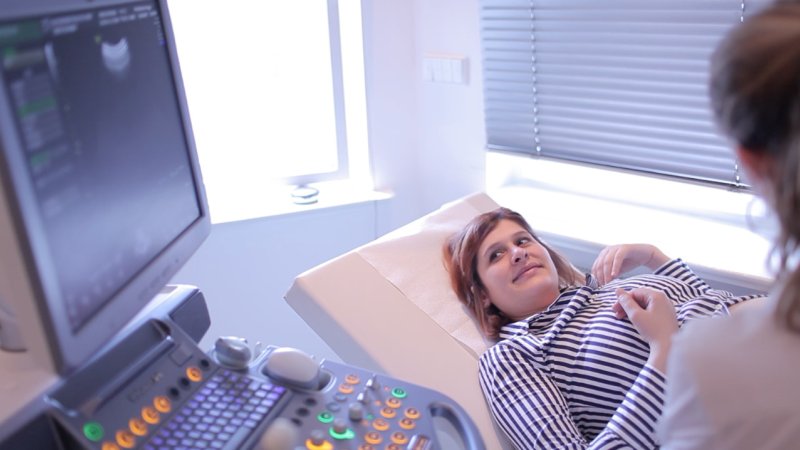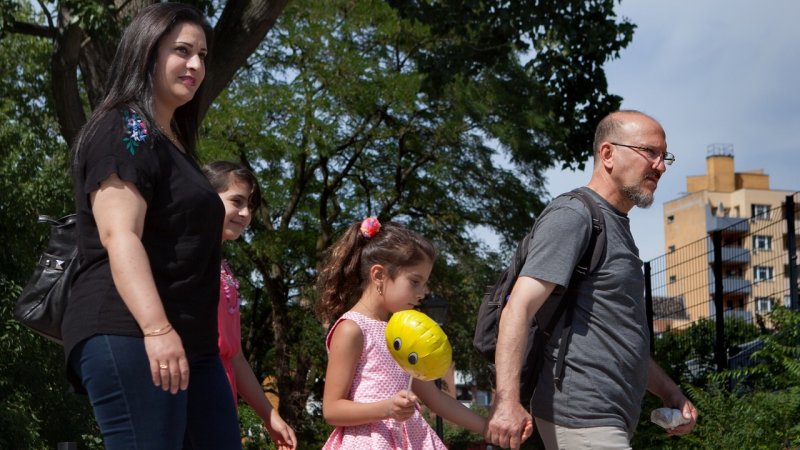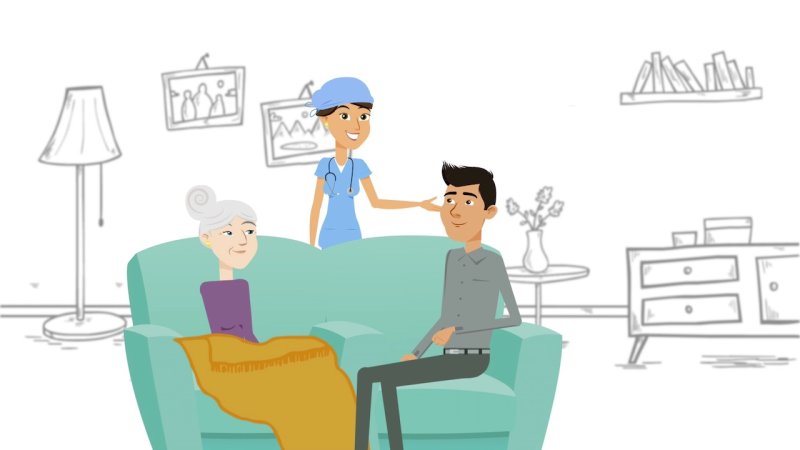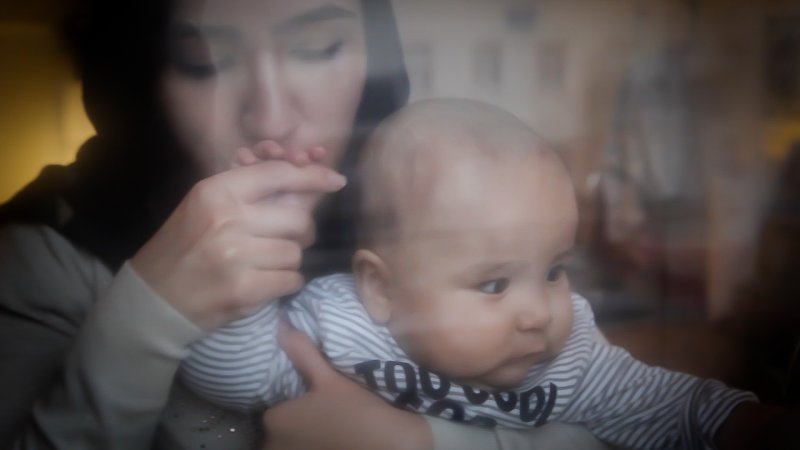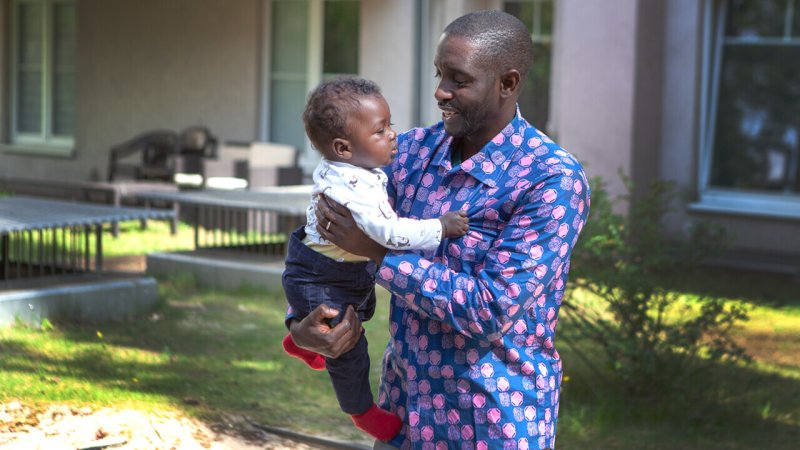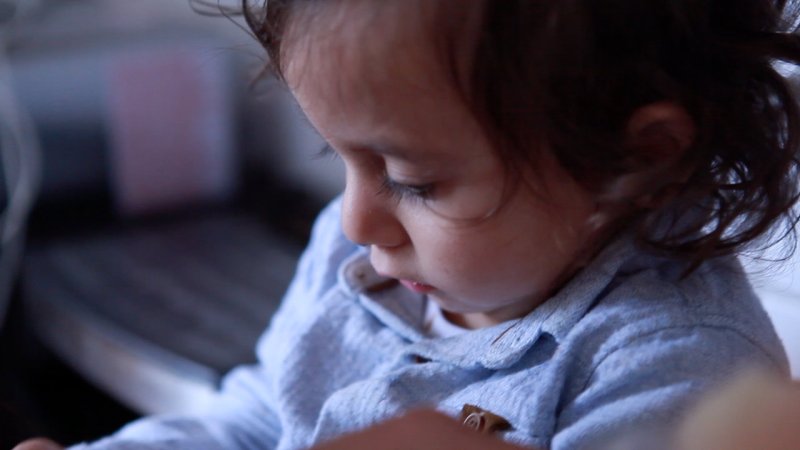Family
Family reunification, children, marriage and more
Certified Copies
You have most probably heard the term "certified copy" ("beglaubigte Kopie") or the phrase "you need to have your documents/certificates authenticated" in Germany. In particular, when applying at university or the Civil Registry Office ("Standesamt"), you are required to submit a certified copy of your diplomas or documents. Here you can learn what a certified copy is and how you can make a certified copy of your documents.
Child Benefit
Raising children is costly, from nappies, clothing, toys, school supplies, and recreational activities to (later on) vocational training or university education. In Germany, there is a form of state aid known as "Child Benefit" or "Kindergeld", paid to support families financially and help parents provide their children with a good life and a bright future.
Child Custody in Germany
Being a parent is a big job and comes with huge responsibilities. In Germany, many of these responsibilities and obligations are regulated in custody laws. Section 1626 of the Civil Code stipulates some crucial regulations concerning child custody. It states that parents must take good care of their children and bring them up in a violence-free atmosphere. These regulations are designated to ensure that children are protected and well cared for. Although parents are entitled to make decisions in certain areas of their child's life, they must also consider the child's wishes. Respecting children's autonomy and choices is an essential part of custody rights.
Child Maintenance
Raising children is wonderful but also costly. That can sometimes become an issue, especially when parents separate and/or are not together (anymore). In such cases, arguments over the amount of money one parent has to give the other for children's expenses are common. In Germany, such payment (i.e. child maintenance) is regulated in the maintenance law or "Unterhaltsrecht". The maintenance law determines which parent has to support the other financially and the minimum amount of money they pay. In this chapter, you can find the essential information on child maintenance in Germany.
Children and Youth Protection
Children and adolescents need appropriate protection - that is why they are subject to specific regulations. Not only are children and adolescents prohibited from the consumption of alcohol and tobacco or going to bars and clubs, but the law also regulates the consumption of films and video games by minors. Its purpose is to protect health and development of children.
Divorce Procedure in Germany
If you are contemplating divorce, there are many laws and regulations you need to consider. A divorce entails a complicated legal process in Germany- which means there are crucial points to consider and various issues to work out before the official divorce. Here you will find everything you need to know about the divorce process in Germany.
Educational Package
Participation in school trips, learning to play a musical instrument or joining a sports club can be costly. And such expenses are often not easy to afford for many families. The "Bildungs- und Teilhabepaket" (also called "Bildungspaket" or "Educational Package") is a form of state aid for children from low-income families intended to enable them to participate in school-related and leisure activities. With the Educational Package, the government supports children to participate in and benefit from certain activities and services at school and in their leisure time, such as lunch service at school or after-school care, private tuition and joining sports clubs and music classes.
Expecting a Baby
Whether longed for or entirely unplanned, pregnancy and childbirth is a life-changing event. It can throw parents off the track for a while. In this chapter, you will find out where to seek help and support during pregnancy, what rights you have, and what issues you need to consider and plan for before childbirth.
Family Asylum
If your family has come to Germany after your recognition as an individual entitled to asylum, refugee status or subsidiary protection and in the framework of family reunification, they have the option to apply for family asylum ("Familienasyl"). If accepted, your family will have the same status and rights as you do.
Family Reunification for Immigrants
Marriage and the family are under special protection in Germany. Nevertheless, it is not that straightforward for the so-called third-country nationals to bring their family to Germany. Whether you can bring your family to Germany depends primarily on your residence status. In addition, however, you need to meet many other requirements.
Here, you can find out everything about family reunification for third-country nationals without a refugee background. The prerequisites for refugees are different. If you are a refugee, you can read more about family reunification in our chapter "Family reunification for refugees".
Family Reunification for Refugees
If you want to bring your family to Germany, there are several rules and regulations you should keep in mind. The most decisive factor is your residence status. In case your asylum procedure is still ongoing, or you have a so-called "Duldung", family reunification for you is, in principle, not possible. But if you are granted asylum or recognized as a refugee, you have the right to reunite with your family in Germany. For the individuals with subsidiary protection and those for whom there is a national ban on deportation, currently, special regulations apply.
Here we go through right of family reunification for individuals who came to Germany as refugee - for others who come to Germany there are different regulations. You can learn more in our chapter “Family Reunification for Immigrants”.
Home care
Many of those who are in need of care prefer to be cared for at home instead of moving into a nursing home or retirement residence. Living at home means you can be looked after by relatives or a nursing service (or both) and stay in your familiar environment. Caring for someone at home is called "outpatient care" ("Ambulante Pflege") or "home care" ("häusliche Pflege").
The so-called long-term care insurance ("Pflegekasse") partly bears the costs of home care, provided that you are covered by one, and they have determined your need for long-term care. You can read more about the issue in our chapter "Nursing Care System".
Here, we explain your rights as a patient who wants to be cared for at home. Furthermore, if you are a caregiver, keep reading to learn what rights you have as the provider of care for a loved one.
Independent Right of Residence for Spouses ("Eheunabhängiges Aufenthaltsrecht")
After the end of a relationship or a partner's death, there are often many issues to clarify. If you are not from Germany, you usually have to apply for a new residence permit, particularly if you have come to Germany via family reunification because your partner was already living here. If you separate or your spouse passes away, you may lose your right of residence. However, under certain conditions, you can remain in Germany. These conditions have been regulated within the "Independent right of residence for spouses" ("Eheunabhängiges Aufenthaltsrecht") in §31 Residence Act.
Jobcenter
The Jobcenter can provide you support if you live in Germany and do not have enough money to care for yourself and your family. Under certain conditions, the Jobcenter helps people who have never worked in Germany, those who have been unemployed for more than a year and individuals who earn little despite working. If you are in one of these groups, you can seek financial support for yourself and your family from the Jobcenter. Such support is called „Citizen’s Allowance“ or„Bürgergeld”. It is the successor of the "Arbeitslosengeld II", which was also known as "Hartz IV". The Jobcenter staff will also help you look for a job. Jobcenter can also take over the costs for German courses or further training programmes if it can help you find a job.
Legal Aid
Anyone may need to seek their rights at court or have to defend himself/herself against a charge at some point. However, litigation fees are quite high: if you lose, you have to pay your lawyer and court costs. In Germany, Legal aid ("Prozesskostenhilfe") has been established so that people with low income can also demand/defend their rights. "Prozzesskostenhilfe" is a government aid for people with limited income, i.e. the state assumes the costs of the lawyer and the court for certain legal proceedings to make sure no one is prevented from pursuing their rights in court because of substantial expenses.
Marriage in Germany
In Germany, you do not need to be officially married to live with your partner and have children. Many still opt for marriage. To register your marriage in Germany you need to arrange a few things and prepare. Here, you will find everything you need to know before registering your marriage.
Mother tongue
Speaking German makes your life in Germany much easier and is an important step towards the job market. Learning German, however, doesn’t mean you should unlearn your own language. Especially children adapt very quickly and could forget the language of their parents. In our globalised world, language skills are a big advantage, which is why it is important to promote them. Here you can find some helpful information about multilingual schools and language courses.
Nursing Care System
A severe illness, an accident or old age can prevent you from being able to take care of yourself and make you need help with washing, shopping, eating or taking care of yourself. You will not be left alone with such difficulties. If you need help taking care of yourself (be it permanently or for at least six months), you are considered to be entitled to nursing care in Germany. In this case, you usually have the right to support and financial aid provided by nursing care insurance ("Pflegeversicherung").
Parental Allowance ("Elterngeld")
Childcare is a big topic for all young parents. And it is not always easy to reconcile work and family. In Germany, the estate provides so-called "Elterngeld" to support young families. "Elterngeld" or parental allowance serves as financial compensation for parents (or legal guardians) who temporarily have a lower capacity for work or cannot work at all after the childbirth as they care for their children. You can also apply for a parental allowance if you did not work before childbirth. Read further to find out if and how you can receive a parental allowance.
Parental Leave ("Elternzeit")
Parental leave ("Elternzeit") is a leave from work for which the parents of babies and young children can apply. If you want to spend more time with your child, you can "go on parental leave". During this time, you do not work or do so only for limited hours. Mothers are not the only ones who use such an opportunity in Germany. More and more fathers apply for parental leave so that they can spend more time with their child in the first years of his/her life. After parental leave, you can return to your previous job.
To learn about the financial options you and your family have during parental leave, check our chapter "Parental Allowance".
Parenting
Parents are not only faced with the task of raising their children, but also nurturing them to become developed adults. Of course, the parenting style you choose is entirely up to you. In many families, arguments and problems are part of everyday life - not only with teenagers, but also with younger children. It is worth to mention that in their daily life, in daycare or school, a lot is demanded of children, and they too are often exposed to stress and pressure.
Does your baby cry all night? Does your child have problems finding friends? What if your teenager doesn't listen to you any more and, for instance, comes home way too late? Does your child often react aggressively or hide in their room? Does your child spend all his free time on the computer or mobile phone? Does your child have problems at school? Or with the police? Do not worry! You are not alone with your concerns and responsibilities. In Germany, there is a broad network of advice centres and organisations specifically tasked to support parents in bringing up your children.
Important: Children in Germany are entitled to a violence-free upbringing. As regulated in §1631 of the Civil Code, punishing or injuring children physically or mentally is forbidden - that includes, for instance, slapping, shoving, shaking, locking up, pulling the hair, blows, injuries to the skin, beatings, kicking as well as humiliation and intimidations and alike. If the Youth Welfare Office learns of a child abused in any way from a neighbour, Daycare Centre or school, they are legally bound to investigate the allegations. You can find out more about the responsibilities of the Youth Welfare Office in our chapter "Youth welfare office".
Residence and Citizenship for Babies Born in Germany
When a child is born, the joy of parenting is often accompanied by various questions and concerns. Apart from general questions about pregnancy and childcare, refugee/migrant parents often have to address other issues, such as residence permit. In this chapter, you can learn about the residence rights to which you and your children are entitled when you have a child in Germany.
Social Mentoring in Germany
When you are new in Germany, suddenly, everything might seem foreign and disorientating. Wondering how you should navigate your new life? There are many counselling centres supported by various organisations that offer you help, for instance, to do your paperwork or solve legal issues. That is great support, but nothing can replace personal connections. To have someone who accompanies you over a longer period of time and supports you with everyday questions and appointments is much better. A person with whom you can also talk and spend your free time; someone who might even make you feel like a friend and family. But where do you find such a person? Social mentoring programmes are a great option to try. These programmes are voluntary and provide their service free of charge.
Good to know: Even if you have been in Germany for a long time, you can benefit from the many advantages of mentoring programmes to seek support or pass on your knowledge about life in Germany to those seeking support.
Youth Welfare Office
The Youth Welfare Office ("Jugendamt") in Germany has numerous tasks and responsibilities- and almost every family comes into contact with their staff at least once. The Youth Welfare Office not only looks after neglected or abused children and adolescents but also provides advice and support for all other families. If you have any questions regarding childcare or face any challenges concerning your children, you can always reach out to the staff of the Youth Welfare Office at your place of residence. Children can also contact the Youth Welfare Office directly if they face any problems with their parents.
Important: The Youth Welfare Office is responsible for all families residing in Germany, regardless of their nationality or residence status.
